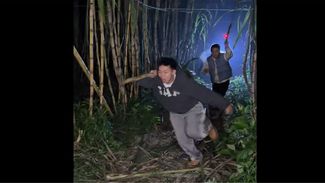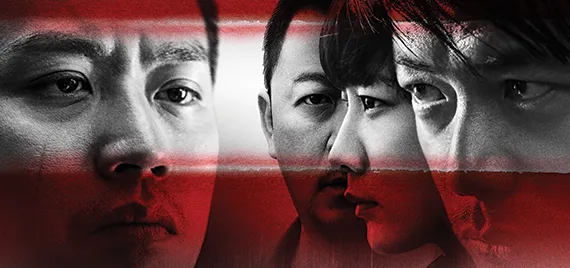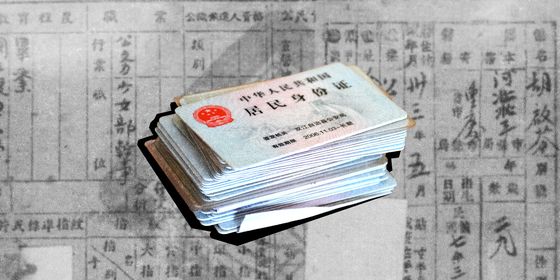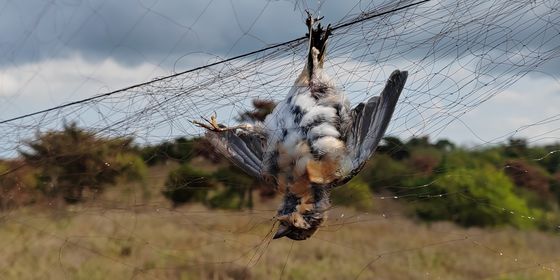Gritty crime film based on the novel from Chinese crime journalist Xu Yigua
Any film that that makes you sympathize with a man that rapes a woman to death has achieved something out of the ordinary, and, odd as it sounds, Cao Baoping’s The Dead End does exactly that—a tight genre thriller that reaches for something far more than the sum of its parts. The film’s bleak, black and white mise en scene grabs viewers’ attention. It shows three panicked men scrambling down a hillside side in the midst of storm, fleeing the remote scene of a quintuple murder and a brutal rape.
The level of their involvement in the crime is unclear, but things certainly don’t look good for them; an omniscient narrator chimes in telling us that these men “must shed their skins” and start anew. Fast-forward seven years and the trio are living in a manner that can only be defined as quietly seeking redemption: Deng Chao plays Xin Xiaofeng, a nervous auxiliary policeman who refuses promotion; his friend, taxi driver Yang Zidao (Guo Tao) keeps his head-down, secretly performing deeds of kindness and atonement, and Chen Bijue (Gao Hu) plays a mentally-challenged man who cares for the three men’s adopted daughter, Tail. The final protagonist, Captain Yi Guchun (Duan Yihong) is a world-weary cop who can’t give up on the case and serves as Xiaofeng’s partner, arguably turning in the film’s strongest performance, of which there are many.
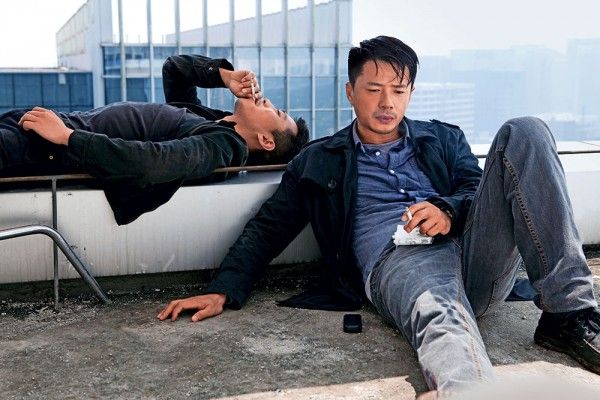
Xin Xiaofeng (Deng Chao) and Yi Guchun (Duan Yihong) smoke on a rooftop after finishing their last mission
A certain anxiety often hangs in the air when a film is based upon a book, and the screenplay for The Dead End is based on the 2010 novel Sunspots (《太阳黑子》), by Xu Yigua (须一瓜), a journalist who spent many years as a crime reporter for the Xiamen Evening News. The original novel revolves around a trio of close friends who desperately try to atone for a horrific crime they committed ten years previously by adopting the daughter of one of the victims.
The film sticks closely to the format and from the outset it is clear that Cao is trying to go a bit beyond the conventional and is a director of real talent—his cinematography is sharp, making ample use of shaky, handheld camerawork, giving the film a hard-edged cinéma vérité style. Meticulous attention seems to have been paid to lighting, décor, and costume.
The liberal use of jump-cutting accompanied by a pacing that deftly jumps between that of a bum-on-edge-of-seat, speedy, taut thriller and a slower, more intense philosophically brooding film means this slick picture has several different gears to go through. The film manages to hold you for all of its two hours and more—no mean feat in these times of ill-attention.
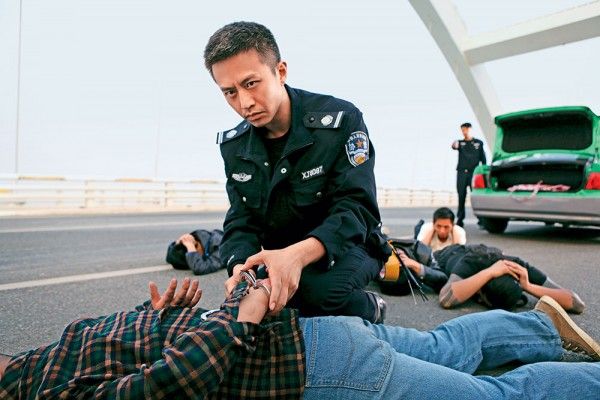
Xin Xiaofeng, a police officer, putting handcuffs on a suspect
Though a fine film, there are more than a few things that do detract from it: there are a couple of moments of slightly slapstick comedy which feel intensely out of place in what is otherwise a serious engaging murder mystery chasing still grander themes; Guo’s restrained acting is occasionally spoiled by his having an underwritten love interest unnecessarily shoe-horned into the film. Wang Luodan’s (as Yi Guxia) merely adequate performance looks much worse than it is when measured against the superb award-winning male turns around her. And, the reason for the trio’s involvement in the murders is never fully explained, which, of course, weakens our journey with them on their road to redemption as we are never quite sure how much they need to be redeemed in the first place.
A few months before the film’s release, actor Gao Hu was arrested on drug charges and consequently many of his scenes where unnecessarily edited out, thus giving the unholy triptych of Xiaofeng, Zidao, and Bijue an uneven feel; it would have been interesting to see the original edit. A couple of times in the film we have sight of Xiaofeng grasping another man’s hand, barely saving a man from falling a great height from a building. For such a trope to appear just once in a movie feels trite, but twice? There also a few plot-holes that this reviewer has been unable to redress.
However such gripes do not do too much damage to a film which has far more pluses than minuses. And it deals directly with things in a way that the Chinese film industry, ever wary of censorship, usually cannot handle: clunky on-message moralizing is almost completely avoided; we get (not particularly graphic) scenes of homosexual sex dealt with in relatively straightforward manner; and the film, arguably, challenges the nation’s policy of capital punishment through a bold denouement showing the Chinese authorities administering the death penalty via lethal injection. Cao clearly has no issue challenging taboos, and you are left hoping that he continues to make challenging films rather than going down the path of the commercial mainstream that so Xin Xiaofeng, a police officer, putting handcuffs on a suspect many directors walk down once they have had moderate success with early more engaging and artistic content.
“The Dead End” is a story from our newest issue, “Family”, coming soon. To read the whole piece, become a subscriber and receive the full magazine. Alternatively, you can purchase the digital version from the iTunes Store.


